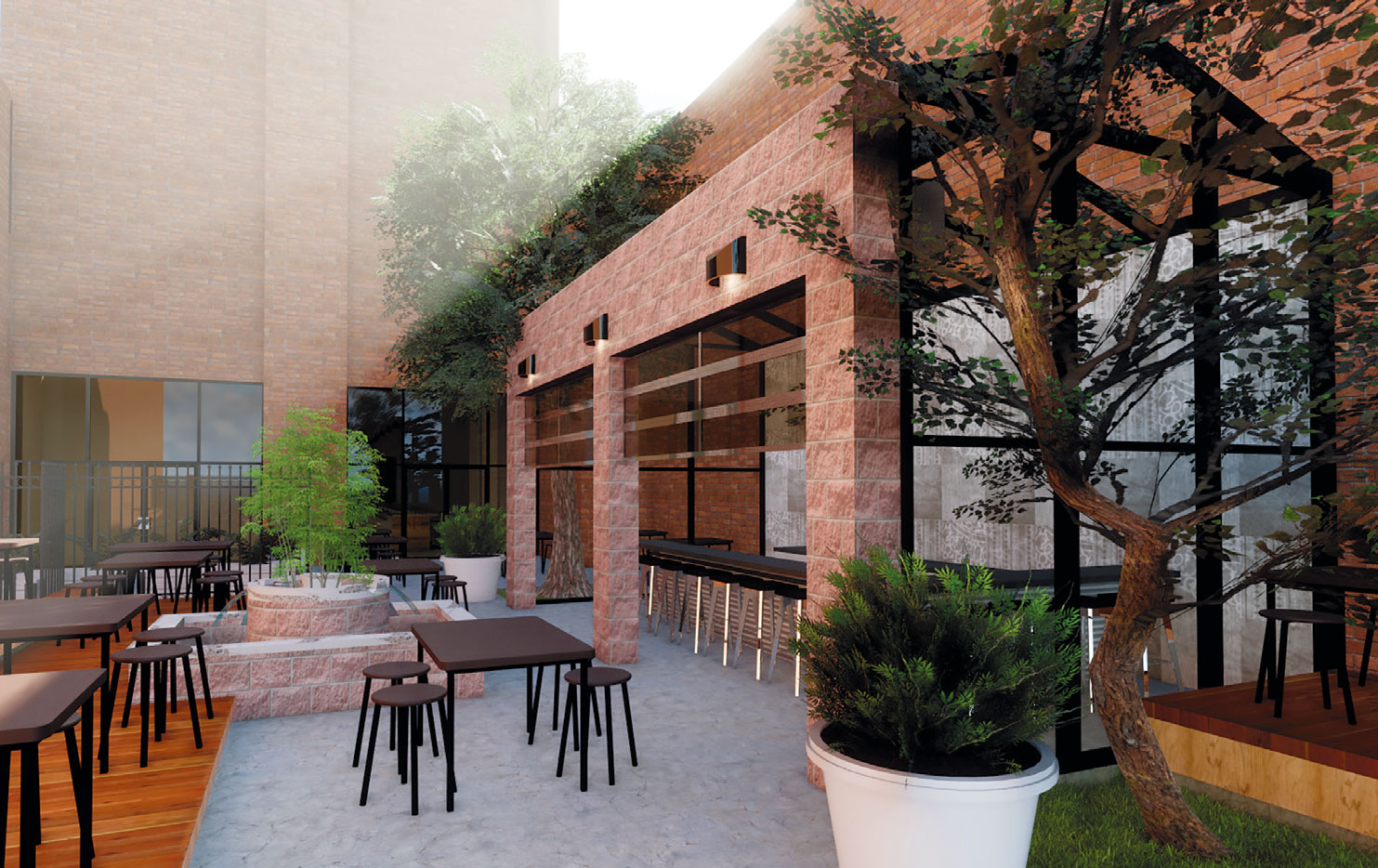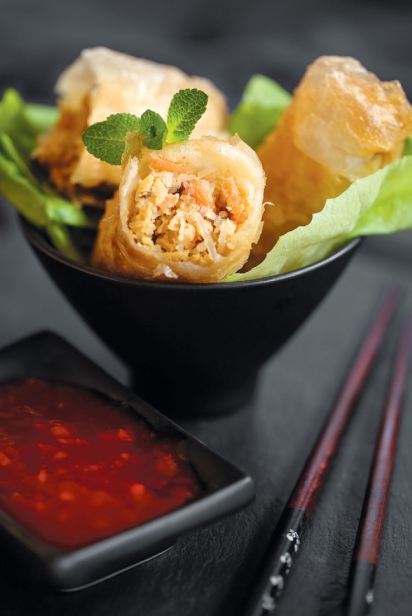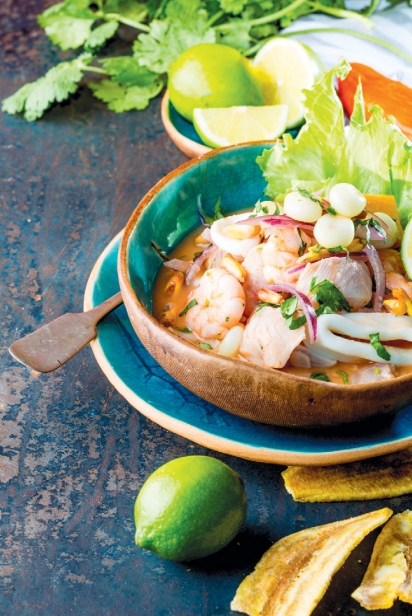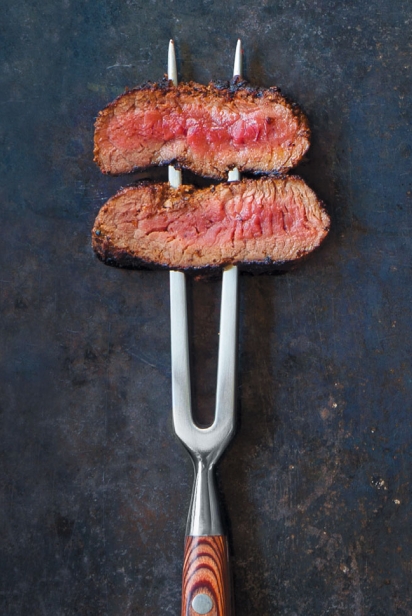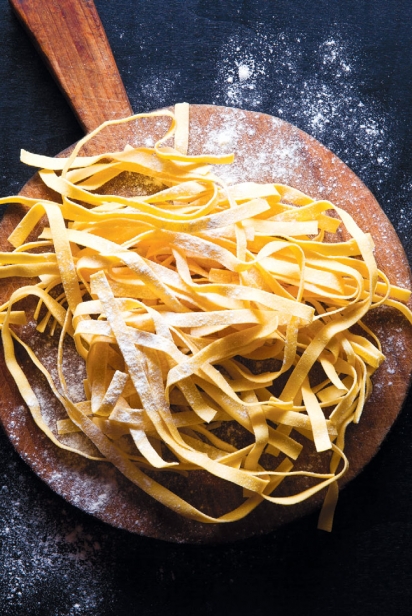Bravery Food Hall is a Foodies Destination
Bravery Hall meets crowdfunding in new chef-driven venture
In Anh Mai’s opinion, Houston has entered a bolder, braver stage of fine dining—one that embodies boundless opportunities for chefs, restaurateurs and adventurous eaters alike.
Perhaps that is why the culinary entrepreneur and his team chose such a fitting name for their newest development: Bravery Hall, a soon-to-open, 9,000-square-foot food hall in the Aris Market Square high-rise, across from Market Square Park in Downtown Houston.
The multi-entity project, scheduled to open this summer, highlights the work of five Houston chefs and each of their creative takes on cuisine. They add up to a world of options, including Ben McPherson’s foray into Italian pastas and pizzas, Christine Ha’s Asian street-style dishes, Felix Florez’s succulent steakhouse meats, David Guerrero’s Latin American–inspired seafood selections and a yet-to-be-revealed fifth project. The founders of Pax Americana are also involved with the development of the chef hall, which will feature three bar programs as well.
Much like Conservatory Underground Beer Garden & Food Hall, Mai’s first—and arguably Houston’s first—food hall, Bravery Hall exposes diners to an arena of sensory experiences and the opportunity to choose one’s own dining adventure. “You can go with a group of friends and not be stuck with one menu or one price point,” Mai says. “Every visit to Bravery is a new exposure and a new experience.”
What’s more, the project sets itself aside from its predecessors with its unconventional investment platform, which allows anyone to crowdsource funds to financially support the restaurant with an opportunity to receive returns over a period of time.
The company behind this creative capital-raising endeavor is called NextSeed, a Houston-based business that highlights debt financing for both local and national projects—including restaurants, fitness studios, bars and more—available to receive funds online from anyone with at least a $100 to invest. In addition to Bravery Hall, the company has also crowdsourced capital for Houston businesses Peli Peli, Chapman & Kirby and Citizen Pilates.
Abe Chu, co-founder and chief marketing officer of NextSeed, says that years-past financial downturns across the U.S. have spurred the public’s interest in investing in their local communities as opposed to uncertain, obscure funds. “There’s a lot of distrust in financial institutions after ‘too big to fail’ and the recession, and people have started to look to communities they trust to invest their money,” Chu says. “Our focus is on building local communities and there’s a lot of influence here [in Houston].”
For Mai, Bravery’s investment platform is one of the several facets of the project’s commitment to championing the local culinary community and its main characters. In fact, Mai says that the traditional front-of-house setup of hostesses, waiters and managers will be stripped away at Bravery, allowing chefs and cooks to be in direct contact with their diners during the hustle and bustle of service—exchanging feedback, commentary and ideas.
“We took all the layers of a traditional brick-and-mortar, got rid of the middlemen and stripped it down to just the chefs and the cooks,” Mai says. “These are the people that are most passionate about food and they’ll be the ones receiving the direct feedback about the food. It gives customers and chefs the opportunity to have a direct, open relationship right there on the counter, and that’s not something you always have at a [traditional] restaurant. It’s a disrupter to the system.”
In selecting the chefs for Bravery Hall, Mai and his team also understood that the chefs would have to work as a team to help Bravery succeed as a whole as well as championing each other’s individual projects.
That is one of the intriguing concepts that caught the attention of Ha’s husband, John Suh, who was searching for a place to invest some of Ha’s earnings from her win on the third season of “MasterChef.”
According to Ha, she and her husband approached the Bravery Hall team with an interest in investing in the project; in turn, the group asked if the award-winning chef would also be interested in becoming one of the five chefs featured.
“It was all very serendipitous,” she says. “People kept asking me when I was going to open a restaurant after ‘MasterChef,’ but I really wasn’t ready to go into a [large] commercial kitchen. That’s a huge personal and financial undertaking, but opening a space in a chef hall is a smaller investment and one that still gives me the creative outlet to produce the menu I always imagined.”
For her upcoming restaurant, The Blind Goat, Ha will be focusing on what she’s known best for: Southeast Asian and Vietnamese cuisine, with small, shareable plates like basil razor clams and carpaccio beef seared with lime juice and herbs.
And like Mai, Ha agrees that the chef hall will allow her to form a close relationship with her diners. “I plan to have a very strong team helping me so I can be more available to talk to guests and [receive] their feedback,” she says. “At every pop-up I’ve done, once everything is running smoothly in the back, I like to circle the floor and greet everyone and thank them for coming. This is the same mentality I will have for The Blind Goat.”
Moreover, the chef is excited to see what her fellow Bravery Hall chefs produce in their own branded spaces. “There’s a certain element of teamwork and challenging each other that comes with this because we’re co-existing in a space and working for the benefit of the whole,” she says.
Ha believes Houston is the right landscape to plant a project that is relies on communal support, especially following the tragic events of Hurricane Harvey last year.
“I appreciate that Houston is starting to be recognized for how great it is in terms of its food, diversity and its commitment to helping out the community,” Ha says. “Harvey really pulled the city together and it’s heartwarming to see how people can live together and work together through something like that.”
McPherson, chef of BOH Pasta, says that not only does his new restaurant give him the opportunity to champion Italian cuisine, but also the chance for Houstonians to witness and attest to the work that goes into producing the city’s global cuisines.
“Our guests will get to see us making the food and how much work goes into this quality of food. [We’re] not just buying flour from Sysco and adding water to make everyday pasta,” he jokes. “I’m researching everything down to the types of wheat used, the terrain it comes off of, the proteins—really everything.”
When it came to naming Bravery Hall, Mai drew inspiration from the classic dystopian novel Brave New World, known for its radical story about the future at hand, and says that the more he witnesses Houston’s culinary narrative reveal itself, the more he realizes there is a future for food halls—a bold new direction in dining.
And he’s not wrong about his prediction thus far. Houston already has two more food halls in the works: Finn Hall on Main Street and Lyric Center Market on Smith Street.


